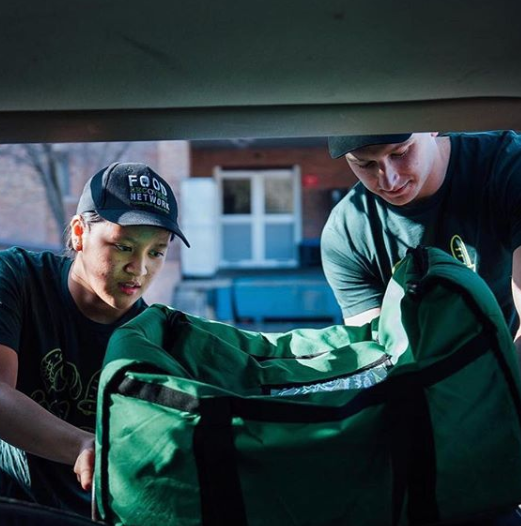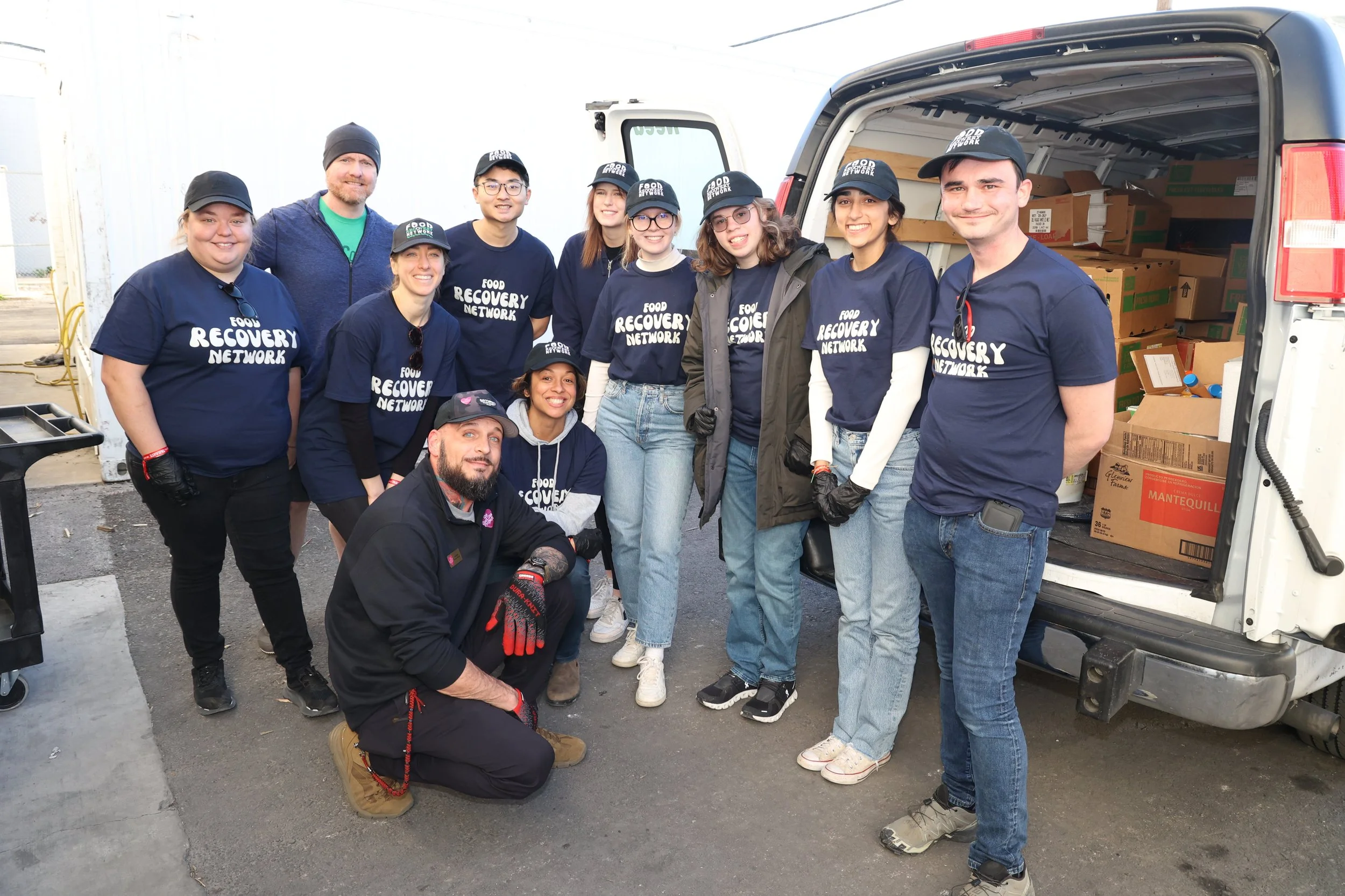Carleton College joined FRN in February of 2014 and has recovered over 150,000 lbs to date. Fun fact, last semester they also helped their local food shelf move 6000 pounds of cereal between storage facilities! Leaders from Carleton worked together to answer the following questions about their work. Responses have been edited slightly for brevity.
What is most fulfilling about your work with FRN. Why?
It’s easy to get stuck in the Carleton bubble, so FRN is a nice way to break out into the great community. Also, recovering tasty food and making meals that we know we would enjoy.
What inspired you to join an FRN chapter?
We were inspired to join Food Recovery because of the ability to interact with the greater Northfield community in a meaningful way while working to help resolve the unjust food system and redistribute food that would have been wasted.
WHAT GOES INTO STARTING A CHAPTER where you live?
During the pandemic, how has this experience been valuable to you?
During the pandemic, we have been one of the few in-person volunteer opportunities for students, and we have been able to maintain our connections with our community partners. As leaders, we have been liaisons for communicating the new needs of the school and our community partners to maximize everyone’s participation in and benefit from Food Recovery Network. The pandemic has resulted in huge increases in food insecurity and needs in our community, and FRN provides a way to actually make a difference despite the restrictions and isolation. It has also been a valuable time to incorporate college faculty and staff into our work with FRN since they’ve helped out with off-campus food deliveries.
What does a just and equitable food system look like to you?
Elimination of systemic hunger. Everyone has access to the food that they want, has healthy options, and corporations do not profit while food is wasted. Connections are formed between sources of food waste and areas of food insecurity. Our chapter has recently thought more about Indigenous food sovereignty and how a just food system will be a decolonial food system that returns power over food to Indigenous peoples and nations.
What advice would you give to new members – especially during a pandemic?
Being flexible is really important and although volunteering doesn’t look the same as before, there are some unique opportunities to interact with the community in new ways that are really gratifying. Also, don’t be afraid to reach out to others! During this time people are more willing to help each other with their time, energy, and food. This is a great responsibility, and it will definitely expose you to some tasks that you have no familiarity with. Communicate with your peers and professors if you need help!
What impact has your chapter had during the pandemic?
We’ve been able to continue food recovery from our dining halls and nearby retailers 4 days/week and provide that food to 3 community partners. Our program directors have also been able to work remotely on several projects for the nearby Community Action Center, including grant writing, GIS analysis, and outdoor food distribution.
Why should others start an FRN chapter if their school doesn’t have one?
Having an FRN chapter at your school can have a big impact on the local community, and you can get to know a lot more about the people and organizations in the town where your college is. It is also super fun! You get to bond with other leaders as well as meet and train new volunteers.
WHAT GOES INTO STARTING A CHAPTER where you live?
What is your Instagram handle?









